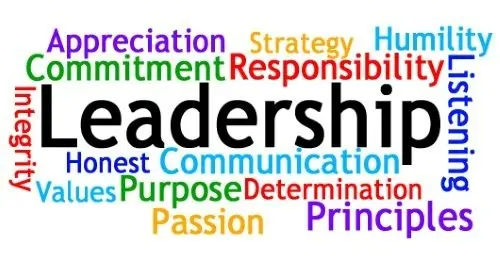As leaders or parents, it often happens that we react to a situation and then repent later. The thoughts such as, “How could I do that?” or a feeling of guilt, “Why the hell did I say so?” keep bothering us for long, sometimes for days or weeks. Occasionally, our own behaviour surprises and shocks others around us. In the corporate world, such an outburst may tarnish our image or even ruin our careers.
What triggers this emotional outburst? It is the Amygdala – the emotional part of the brain; that first emerged in mammals. The Amygdala’s job is to provide us with our most primitive instincts, i.e. fear, hunger and arousal. It is the trigger point for the fight, flight or freeze response. The moment we perceive a threat, Amygdala floods the body with Adrenaline, a hormone that increases the heart rate, thereby moving the blood from the organs to the limbs that enable us to fight or flee.
Initially, this response was meant to save human beings from predators or to protect them from any harm. Gone are the days when humans lived in the jungle, and this fight or flight response was necessary for survival. However, today’s corporate world is not much different from a jungle, where everybody is an emotional predator, ready to win over others. These days, it is not just physical survival, but what matters more is psychological survival. On top of that, the king of the corporate jungle, another species who acts as a modern-day predator – the Boss!
What is more, the Amygdala response is also cognitive. Have you noticed the tiny voice inside your head that restricts you from taking action and gets you caught up in paralysis by analysis? Thoughts such as questioning Boss’s opinion is too risky, she may take away my job, or she will not listen to or accept my idea. I will never make it. I will lose all my money. If I lose my job, I won’t be able to pay the rent/tuition fee for my children. My team member/colleague will take over my role. I don’t have adequate health coverage; what if I suffer a critical illness? My whole family will suffer; we may starve if I do not save enough money. So on and so forth.” Aren’t these thoughts self-limiting, not only to our thought process but to our capacity to optimise our talent? What is the origin of such ideas?
In a normal situation, the stimulus that we receive from the eyes or ears goes to the thalamus first, which acts as a ‘Mobile Switching Centre’. It triggers the concerned part of the brain to interpret it appropriately. Simultaneously, the stimulus is also sent to the Amygdala, where a flood of hormones is released to create related emotions and actions. For example, when we see or hear the sound of an old friend, we feel happy. However, in an emotionally charged condition, even before the stimulus reaches the concerned part of the brain, it gets leaked to the Amygdala. Where it gets mixed up with earlier emotions, and we see what we want to see or hear what we want to hear. Daniel Goleman, in his book Emotional Intelligence, labelled this as an “Amygdala hijack”. The above-mentioned self-limiting thoughts are the perfect example of it.
No doubt, such thoughts restrain us from potential conflicts or confrontation, but more frequently, they limit the actions that may help us succeed. The other effects of this phenomenon are stress and impaired thinking. The moment the Amygdala originates the fear response in our brain, our attention tends to preoccupy with the things that are bothering/upsetting/frustrating/worrying or agitating us. This undue attention to negative thoughts leads to stress. Similarly, strong emotions such as anxiety, anger, joy, or betrayal trip off the Amygdala and impair the working memory of the neocortex. Just like opening up too many programs simultaneously, which consumes RAM and leads to the malfunctioning of the computer system, these powerful emotions overwhelm our rationality. That is why our ability to think straight goes for a toss when we are emotionally upset or stressed. Matthew Lieberman, a neuroscientist, has found a unique relationship between the Amygdala and the neocortex. Times when the Amygdala is active with increased blood and oxygen, there is less activation in the neocortex. This answers why our thinking power is disrupted or we find deficits in our problem-solving capacity when we are emotionally charged.
However, we can take control of the situation. To minimise the damage from Amygdala hijacking, it is essential to practice patterns that may lead to de-escalation. From the hijacked state, where our brain is flooded with electrochemicals, we still have options. We need not stay hijacked; rather, we can choose our actions. In just three to six seconds, the effect of these chemicals goes off, and our ability to think rationally comes back. In his famous book, Seven Habits of Highly Effective People, Stephen Covey mentions that “Between stimulus and response there is a space. That space represents our choice; how we choose to respond to any given situation, person, thought or event”. Hence, when faced with an untoward situation, we need to pause and think about what the appropriate response is in a given case. Listen to what our conscience tells us, and then act accordingly.
In today’s VUCA (Volatile, Uncertain, Complex and Ambiguous) world, most people are walking around with stress, apprehensiveness and uncertainty about the future. And we know emotions are contagious. Therefore, if one person is emotionally hijacked in our team or organisation, most likely, others will catch it, like the flu. Hence, quickly, the team can lose enthusiasm, jeopardise executive decisions and deteriorate teamwork and collaboration.
As a leader, our ability to manage our team’s emotions is paramount. Hence, we need to work as the ’emotional thermostat’ for our team, which can influence the team’s mood and productivity. In other words, as leaders, our emotional intelligence has an enormous influence on the team. Our team may get hijacked at times, but as a great leader, we need to anticipate situations that may be stressful for the team members and take preventative measures. In a stressful moment, we need to know what we are feeling and thinking. We may then get several constructive answers to handle the amygdala hijack and maintain our team’s performance. Needless to say, the same is true for dealing with family issues as well.
Let us know if you would like to unlock the full potential of your leadership team through Assessments & training together! Visit our website, www.assesspro.in, to learn more about AssessPro.
If you need any specific information, please get in touch with us @ vivek@assesspro.in, message us on WhatsApp, or call us at 91-9739197566.Published by Vivek Mehrotra


